I have shared albucas with you before, but you might have missed it. They are blooming now and are just such neat little flowers, I thought they deserved to be in the spotlight again.
Albucas are in the Asparagaceae family, which means they are related to an asparagus! They aren’t edible like asparagus, though, so don’t be tempted. In fact, they are sometimes called slime lily because the bulb produces a slimy sap when broken or damaged; not real appetizing, so there you go. They are also nicknamed soldier in the box, but I am not sure what that is based on. They are native to southern and eastern Africa, and some varieties can be found in northern Africa and the Arabian Peninsula.
I found a long list of varieties, and I’m not sure which one this is, but I am going with Albuca humilis. They all grow out of these bulbs. I read that the biggest problem seems to be rotten bulbs from excess watering, poor drainage, and frost damage, as they are not cold-hardy. In my neck of the woods, they do need to be in pots and brought in during the winter, and I do use a potting soil that provides good drainage with about 50% pumice, 50% compost dirt. The literature says they like sandy soil, less water in hot weather, but I water mine about the same amount all year. You just learn to do what works where you live. I don’t remember ever losing one and find them easy to grow, and I divide the bulbs when they become crowded in their respective pots. You can see in the clump below that the buds have yet to open, but look how full and green the grass-like leaves are. They provide a nice change of textures in dish gardens along with the surprise flowers.
Some species grow to be three-four feet tall; mine never get that big, which suits me just fine. They are also said to have a dormant period and lose their leaves after flowering. Mine don’t do that, either, but they do sometimes have some leaves that will turn brown and dry up. But that is only temporary. When that happens, I do water a bit more. Perhaps that happens to some of the varieties that get larger.
This is not a succulent that is commonly found in the big box trade, but you might come across it at some point. But after they finish blooming, I will be dividing my clumps and will have a few starters for sale, if you are interested.
I had help from Frosty photographing the plants, and I will have his company when I dividing the clumps.
Never a dull moment!
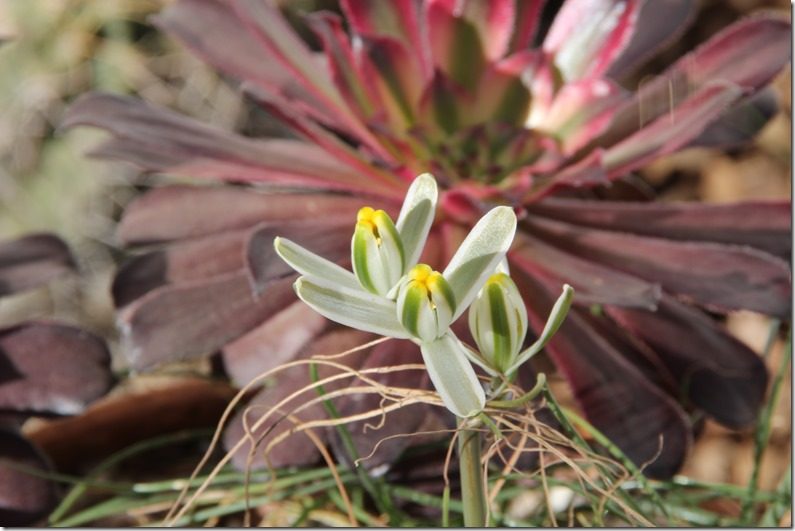
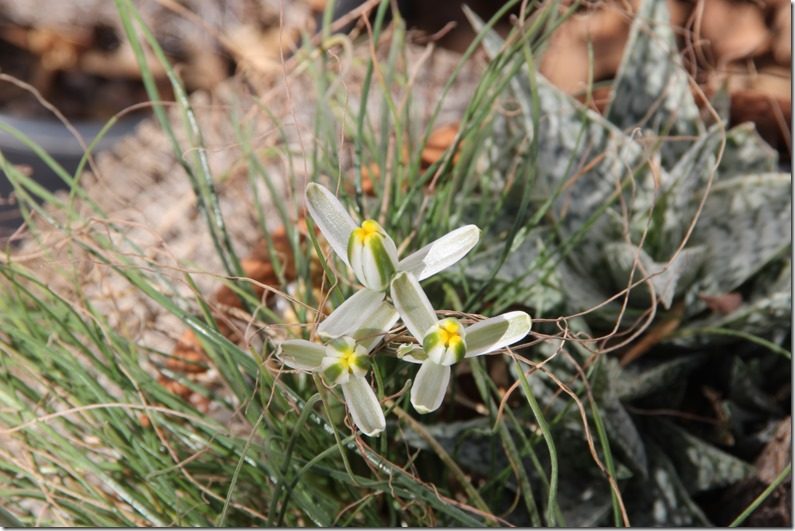
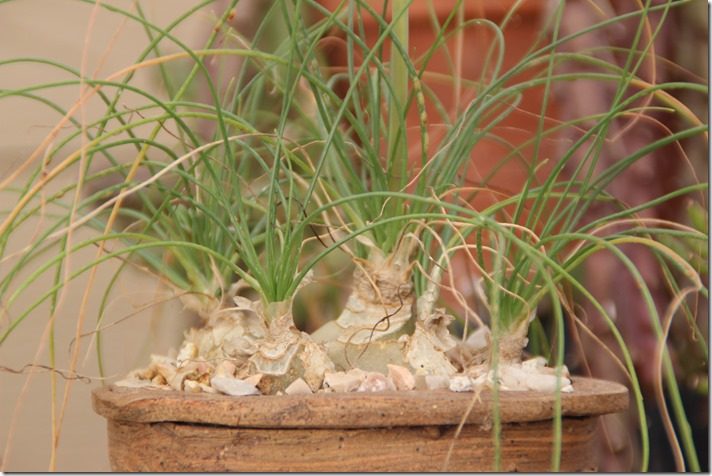
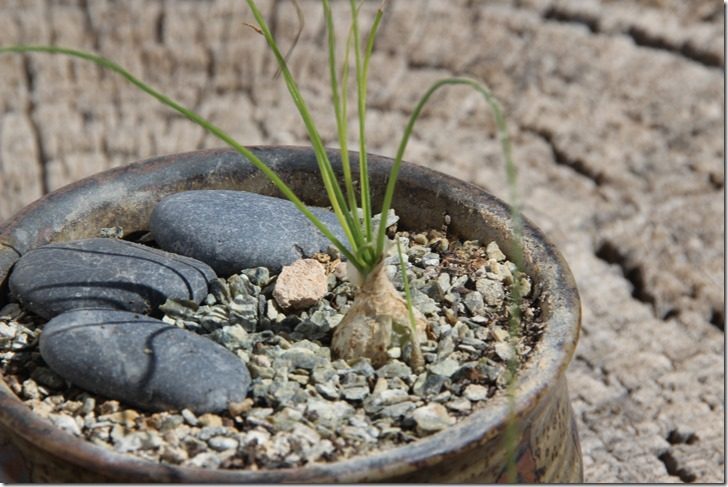
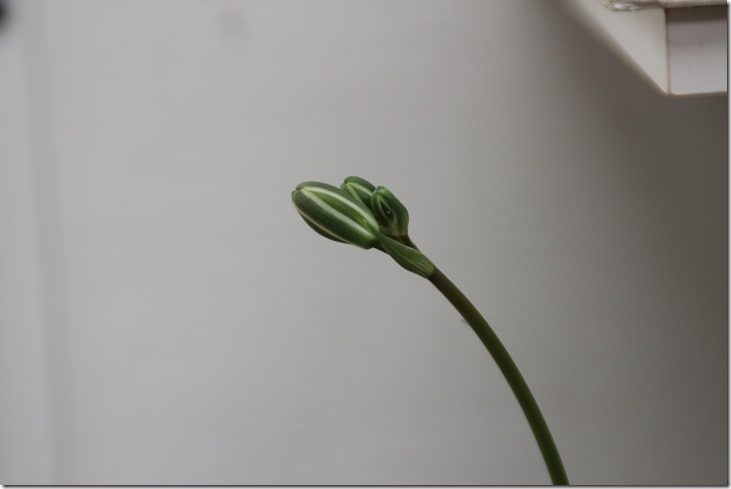
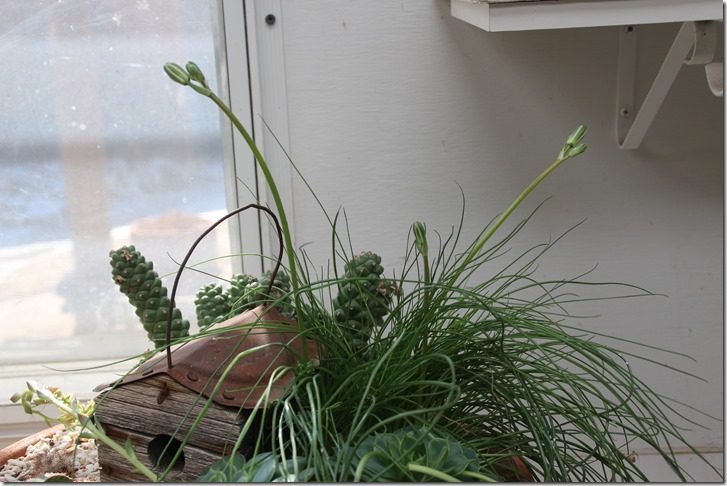
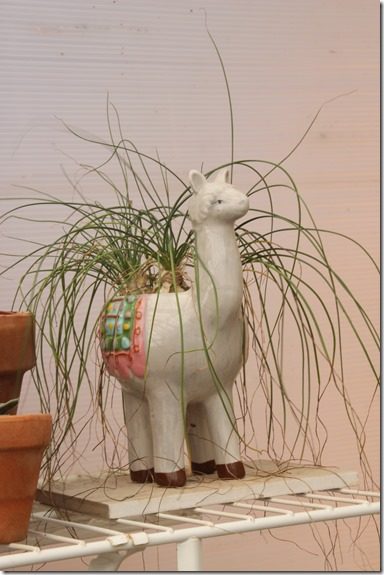
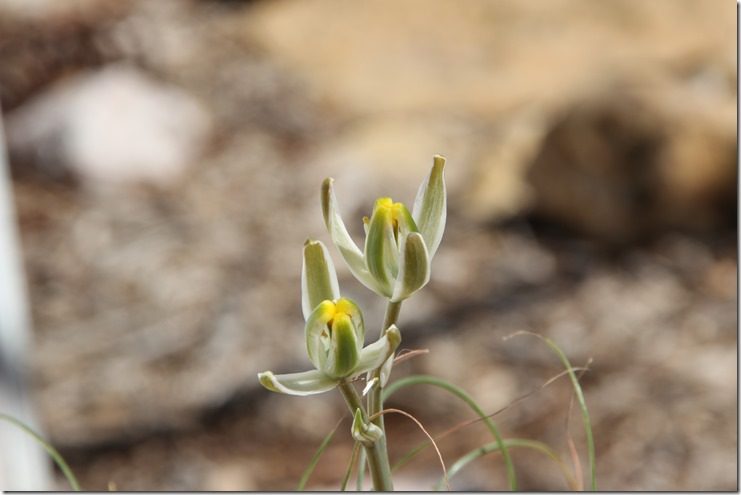
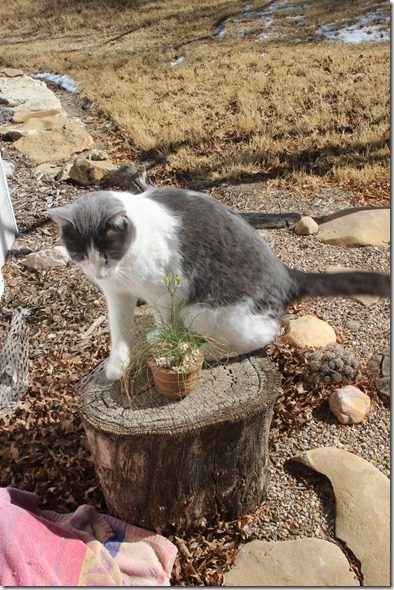
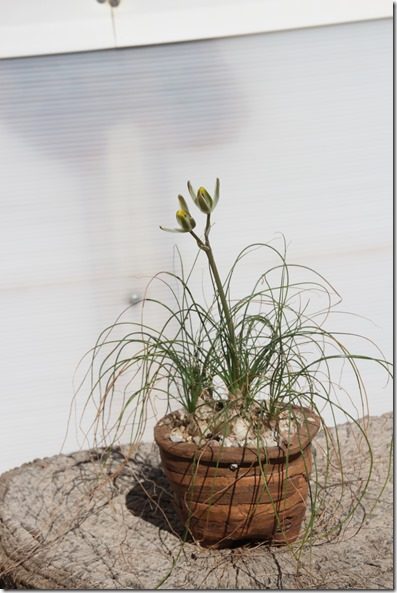
Thank you for this blog info and photos. I already love the one I purchased from you recently and look forward to its blooming.
You are quite welcome! If you just bought it and it isn’t blooming now, it may not bloom until next year, so be patient! Enjoy the foliage and watch the bulbs get bigger and you will be rewarded.
I had forgotten that it was supposed to bloom, and no, it hasn’t bloomed yet. However, it appears to be healthy and has about 9 little bulbs surrounding the one in the middle. Should I do anything with those yet? And if so, how do I go about it? Thanks!
Just keep watering and waiting. Mine tend to bloom in the spring. If it is making more bulbs, it is doing fine. You just have to be patient!
Thank you. By the way, the Christmas Carol aloe that I got from you did send up a stalk with a bloom on it. That totally surprised me!